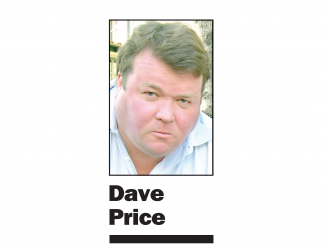
OPINION
BY DAVE PRICE
Daily Post Editor
The public has a right to know how its money is spent. And there are statutes and case law that support that principle.
So it’s perplexing that the Daily Post has been forced to spend more than two years in court trying to find out why the board of a low-profile special district in Redwood City gave its general manager $875,000 in public funds to resign.
All we want a judge to do is tell Silicon Valley Clean Water, or SVCW, to obey the California Public Records Act.
This battle began in July 2019 when the Post learned that the board of Silicon Valley Clean Water had agreed to pay its general manager, Dan Child, $875,000 as part of a severance agreement.
SVCW is an agency that operates a treatment plant on the water’s edge in Redwood City to handle sewage from Belmont, San Carlos, Redwood City and the West Bay Sanitary District.
We printed a story about the payout in 2019 but admitted that we didn’t know why he was given so much money considering his annual salary was $384,320.
We obtained Child’s severance agreement from SCVW, but the copy we got was heavily redacted. In fact, 13 of the 24 pages were redacted either in whole or in part. Some of the pages had a large black box covering all text on the page.
Our reporter asked Silicon Valley Clean Water for an explanation but got none. And Child wouldn’t talk about it.
As we investigated we discovered that Child was fired for cause because a female employee, described in court proceedings as Jane Doe, had brought a complaint against him. We don’t know the nature of her accusations.
Earlier payout amount secret
But whatever those accusations were, SVCW settled by paying her an undisclosed amount of money. SVCW won’t tell the public how much public money was involved — as if the public isn’t entitled to know how its money is being spent.
In September 2019, the Post filed a California Public Records Act request with SVCW for several documents including the unredacted settlement agreement with Child and the agreement with Jane Doe.
SVCW was prepared to obey the open records law and turn over the documents the Post had requested. But then Child went to court in October 2019 to stop the agency from releasing the public records.
In other words, by suing, Child stopped a state law, the open records act, from operating as it is supposed to.
Child’s lawsuit caused the Post to intervene in the case or else SVCW might never release the documents.
Justice in slow motion
The case has moved slowly. To start things off, for some reason Child filed the case in Santa Clara County even though SVCW is located in San Mateo County. Under the law, he could have filed the suit in any of California’s counties, but suits are usually filed where the parties are located. It was an odd move. Eventually the case was transferred to the San Mateo County courthouse in Redwood City, but that took months.
Once that issue was resolved, the Covid pandemic began and only urgent cases were moving through the courts. Apparently the public’s right to know wasn’t considered urgent.
Then the parties were required by court rules to enter into mediation. The purpose of mediation is to filter out cases that can be resolved without using the court’s time. That’s generally a good way to make the courts more efficient. But mediation is pointless in this suit because the issue is simply whether the state law requires the release of the documents. It’s a “yes” or “no” question. There’s no middle ground available to a mediator. Predictably, mediation was unsuccessful.
The next event on the court’s docket is a meeting on Jan. 11 to set a trial date.
This will occur more than two years and three months after this court case began. There’s got to be a faster way to resolve a simple dispute.
All the Post wants to ask the judge is whether the law requires the release of the documents. We think the case law and statues are crystal clear. We want the public records law to operate as it was intended.
A newspaper’s watchdog role
The residents of Menlo Park, Belmont, San Carlos and Redwood City fund SVCW through sewer fees. They have every right to know how their money is being spent by this public agency. It’s the newspaper’s job to serve as a watchdog of local government and to ask questions about how money is spent, and whose pocket it goes into.
The California Public Records Act was intended to give the public and press broad access to government information. When there’s a problem in a city, county, school district or special district, the press can use the law to obtain information about the situation and write about it. Then responsible people in the community will step forward and solve the problem.
Secrecy allows problems to fester without the public’s knowledge.
As you probably guessed, I can’t wait for my day in court.
Editor Dave Price’s column appears on Mondays. His email address is [email protected].




I appreciate the Post’s efforts to keep an eye on local government. It must be hard to follow what they do, but I’m glad you’re so committed to the truth. I wish other newspapers were as dogged as you are.
If the board approved the settlements without any advance notice on their agendas, that’s a Brown Act violation and a court will find the payments to these two former employees to be “null and void.”
Thank you for fighting for our right to know how our money is spent.